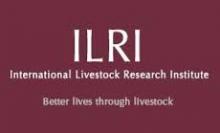Location
Vision, mission and strategy
ILRI's strategy 2013-2022 was approved in December 2012. It emerged from a wide processof consultation and engagement.
ILRI envisions... a world where all people have access to enough food and livelihood options to fulfil their potential.
ILRI’s mission is... to improve food and nutritional security and to reduce poverty in developing countries through research for efficient, safe and sustainable use of livestock—ensuring better lives through livestock.
ILRI’s three strategic objectives are:
- with partners, to develop, test, adapt and promote science-based practices that—being sustainable and scalable—achieve better lives through livestock.
- with partners,to provide compelling scientific evidence in ways that persuade decision-makers—from farms to boardrooms and parliaments—that smarter policies and bigger livestock investments can deliver significant socio-economic, health and environmental dividends to both poor nations and households.
- with partners,to increase capacity among ILRI’s key stakeholders to make better use of livestock science and investments for better lives through livestock.
This is ILRI’s second ten-year strategy. It incorporates a number of changes, many based on learning from the previous strategy (2000–2010, initially produced in 2000 and modified in 2002), an interim strategy (2011–2012) and an assessment of the external and internal environments in which the institute operates.
Members:
Resources
Displaying 1131 - 1135 of 1152Introduction to East African Range Livestock Systems Study/Kenya
Examines the interdisciplinary research being pursued by the ILCA East African Range Livestock Systems Study (EARLSS) team in Kenya, discussing the rationale for an interdisciplinary aproach to the study, factors which led to the concentration of the team's investigation on Maasai pastoralists, and background information on Kenya's Kajiado District & on the three group ranches where the study is focused. Describes the research design & methodology adopted by the EARLSS team, including the initial inventory survey, sampling procedures, dif.
ILCA Botswana. A record of origin and activities, 1977-1981
Records the history of ILCA's involvement in Botswana between 1977 & 1981, w. emphasis on the monitoring of the operational aspects of the Tribal Grazing Land Policy, particularly regarding the implementation of the Second Livestock Development Project, and the monitoring of range, livestock performance, ranch economics, socio-economic activities and the operations of the Nojane ranches; reviews other ILCA activities, particularly research collaboration w. scientists of the Animal Production Research Unit (APRU).
An approach to evaluating techniques for vegetation surveys on arid rangelands
Evaluates the usefulness of direct data collection from low-flying light aircraft for inventory & monitoring animal population & other rangeland features, viz. water bodies, vegetation structure & greenness and human settlements, for planning and management purposes.
A review of the sampling methods used in aerial survey
Reviews procedures for obtaining reliable information on animal populations, other ecological features and land use generally from low-flying aircraft by direct observation or conventional photography, with reference to types of sampling unit, and the relative merits of unstratified systematic and stratified random sampling.


